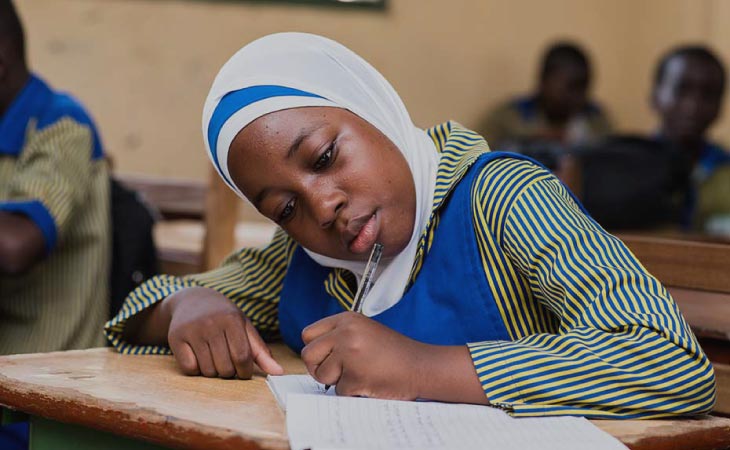Stay in the loop! Sign up for our newsletter to receive regular updates.
Schooling in northern Nigeria: Challenges for girls education

It is being said that “when you educate a girl, you educate a nation”. Education is the bedrock of any developed society, and girl child education is clearly an important part of the bedrock. However, in Northern Nigeria, there is a minimal emphasis placed on a girl’s education because it is believed that she is better suited for domestic work or hawking, which can supplement the family’s income.
In Nigeria, impediments to attending school continue to be a problem, and they are particularly bad in the northern states. Today, about 13.5 million children lack access to free, high-quality basic education, with the majority of them being girls from the North-East sub-region.
The increasingly blatant fanaticism of the Islamist militant group Boko Haram, which targets girls’ education, interferes with school attendance in northern Nigeria in addition to challenges with school access, family and school resources, attitudes toward education, sexism against women, restrictions based on culture, and illiteracy.
The Challenges
A major challenge affecting girls’ education in Northern Nigeria is poverty. Only about 30% of girls attend secondary school in Nigeria’s north-eastern and north-western regions while over 70% of girls attend secondary education in Southern Nigeria. The contrast between the two regions is that almost 87% of all Nigerians who live in poverty reside in Northern Nigeria. In Northern Nigeria, poverty makes it more difficult for girls to obtain an education because of subpar infrastructure, high secondary school prices, or a lack of secondary schools in suitable locations.
Another undeniable challenge is restriction based on culture. Cultural and traditional restrictions have a significant impact on a girl’s decision to enroll in school in Northern Nigeria. The patriarchal system governs the hierarchy of roles for men and women in the north. The system views women as fundamentally inferior to males. According to a widely held idea, girls should learn and perform household duties at home. As a result, many parents have a negative view of girls attending school. This inclination is founded on the conventional belief that sons will take over for their fathers and provide for their families. There is little room for girls to think about education and self-actualization because they are frequently indoctrinated into such gendered roles.
The challenges of girls’ education in the north wouldn’t be complete without mentioning insecurity. It is glaring that the percentage of girls who attend schools in the north dropped significantly since the Chibok girls abduction in 2014. The incident incite fear in a lot of females and this made them further foster the belief that a girl’s place is anywhere except school.
Why Girls Should be Allowed to go to School
Girls’ education not only enables them to reach their full potential but also breaks intergenerational patterns of disadvantage and poverty. A girl’s future is immediately brighter when she continues her education since it boosts her ability to make money. Her ability to establish a better life for herself via education enables her to contribute to the wellbeing, security, and prosperity of her family and community.
Leave a Comment Cancel Reply
Recent Posts
- Sidikatu Aliyu: Shattering Educational Barriers in Remote Sensing and Environmental Management and Sustainability
- iNEI November Student Achiever : Peace Alemede
- Schooling in northern Nigeria: Challenges for girls education
- Female unemployment rate in Nigeria 2022
- Top 10 Best Paying Jobs in Technology in 2022
Search
Categories
iLevate Northward Education Initiative is an initiative aimed at increasing the literacy rate of girls in Northern Nigeria. Although the low level of education spans the entire region, girls are disproportionately affected.


One Comment
Bilkisu Ahmad
June 18, 2021I’m a female student of ahmadu bello university zaria,I want to apply for scholarship